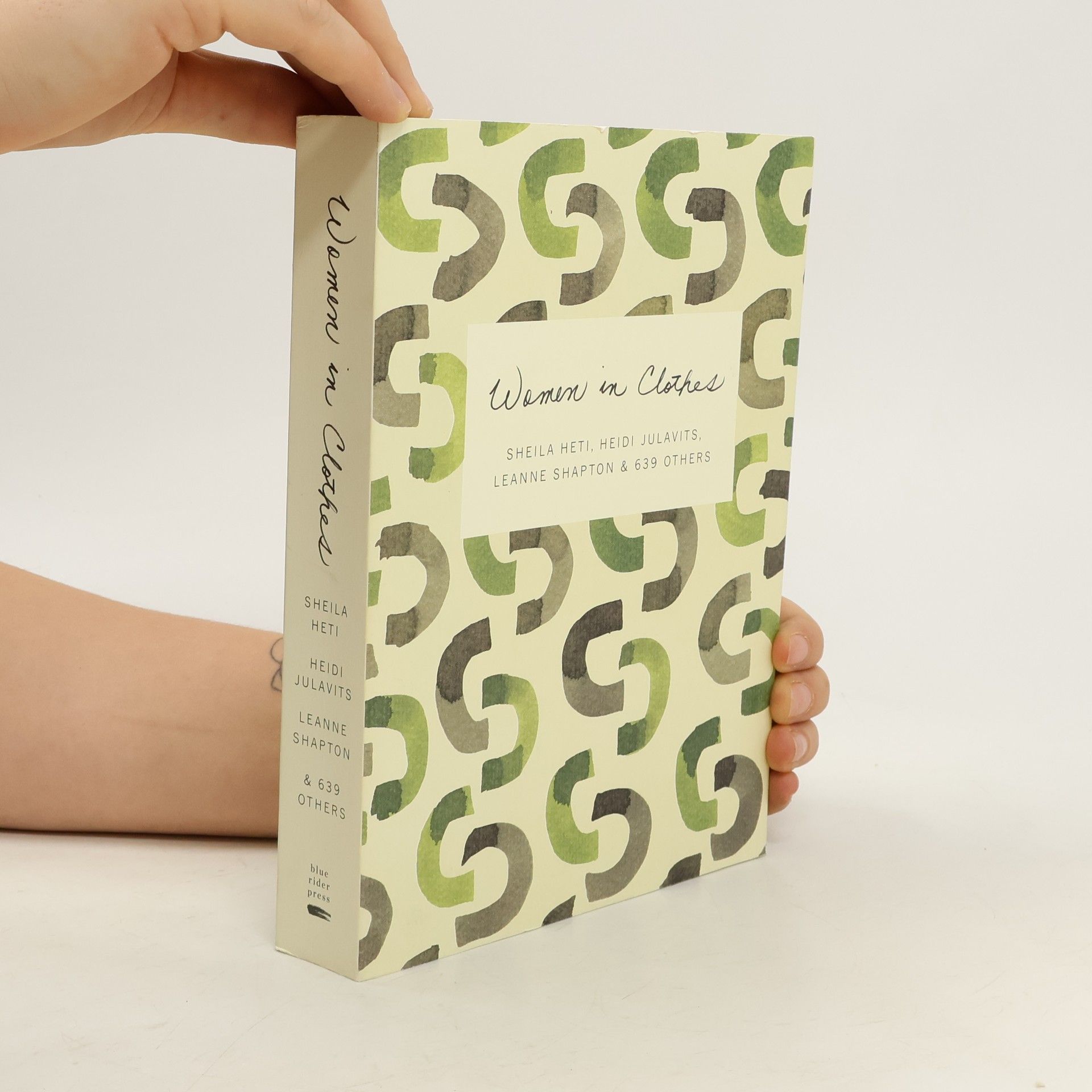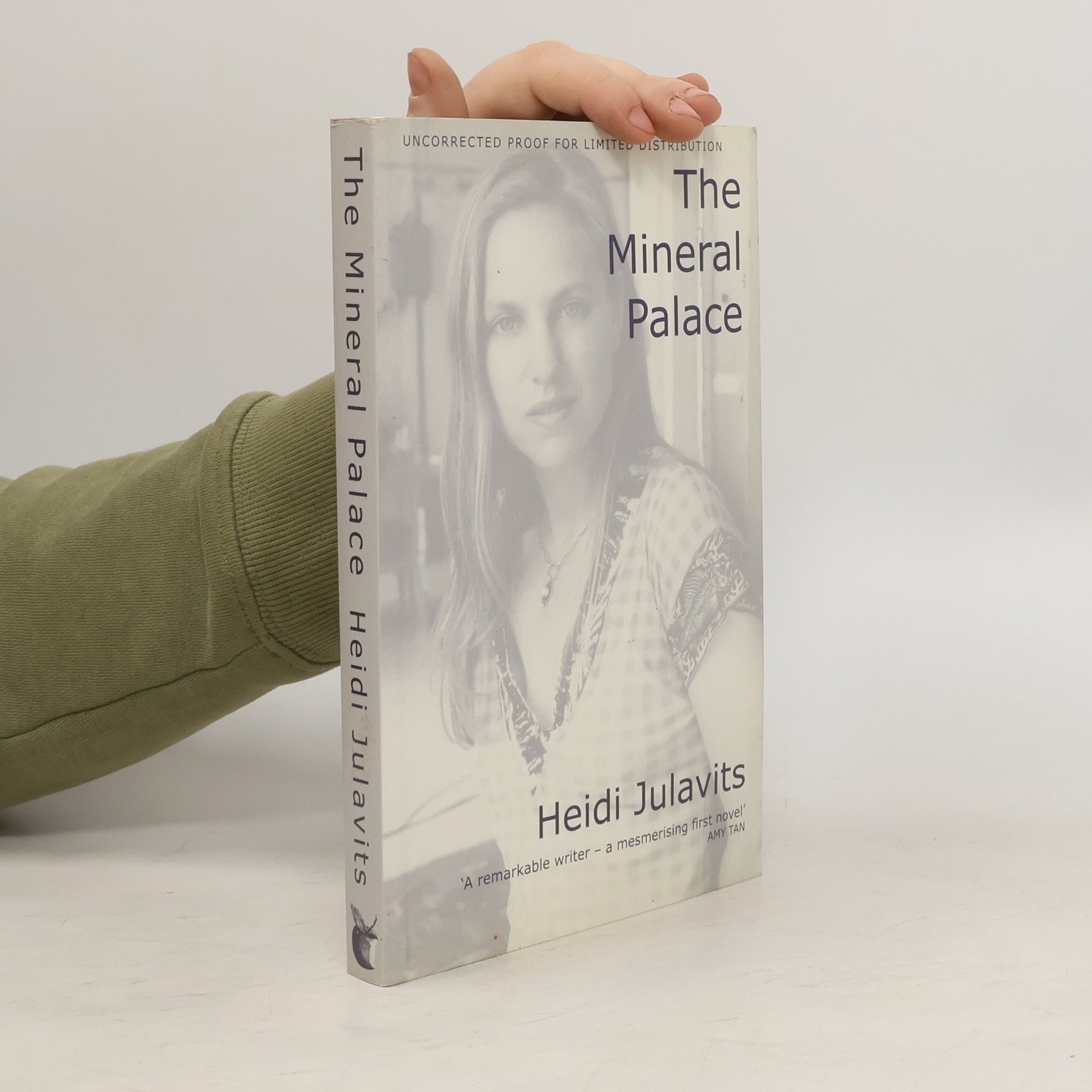Amidst clouds of dust and with a sense of purpose born of the Great Depression, Bena Jonsson -- young mother, physician's wife -- arrives in the desert town of Pueblo, Colorado, and immediately sets about creating a new life for her family. As the days unfold, however, she is quietly haunted by niggling doubts and an insidious loneliness, so she gratefully seizes the chance to explore her stalled career in journalism and accepts an unpaid position with the local paper. But bad omens begin stacking up like charms on a bracelet, and when Bena meets a prostitute accused of infanticide, her defence of the woman triggers a chain of events with unfathomable consequences. Written with an impeccable sense of history and full of impending doom, The Mineral Palace is a stylish corruption of the Medea myth -- a tragic love story and an indictment of society's treatment of untameable, liberated women.
Heidi Julavits Boeken
Heidi Julavits creëert verhalen die zich verdiepen in complexe relaties en de ingewikkelde psychologische diepten van haar personages. Haar proza wordt gekenmerkt door scherpe inzichten in de menselijke geest en maakt gebruik van onconventionele verteltechnieken. Door middel van haar romans en korte verhalen verkent ze thema's als identiteit, herinnering en de onderlinge verbondenheid van menselijke ervaringen. Julavits beoogt haar werk te doordrenken met emotionele betekenis en onderwerpen te behandelen met een zwaartekracht die ze boven louter commentaar verheft.





Women in Clothes
- 515bladzijden
- 19 uur lezen
"An exploration of the questions we ask ourselves while getting dressed every day, and the answers from more than six hundred women"--From back cover.
The narrative explores the profound transition of motherhood as Heidi Julavits reflects on her son approaching adulthood amidst societal turmoil, including campus rape allegations. This personal journey prompts her to confront her identity as a mother and the challenges of preparing her son for an uncertain future. Rooted in her own Maine childhood experiences, the book intertwines family dynamics with broader cultural and philosophical questions, ultimately revealing that personal growth and understanding must stem from within.
'Bena parkte den alten Ford Touring vor dem verlassenen Mineralpalast und ging langsam an den Säulen vorbei durch die kupferne Eingangstür. Vor einem ausgetrockneten Teich, aus dem die Statue einer Nymphe aufragte, blieb sie stehen und drückte ihr Baby fest an sich. Zum ersten Mal seit Wochen fühlte sie sich geborgen.' Als Bena mit ihrem Mann Ted und dem kleinen Sohn nach Pueblo, Colorado, zieht, hofft sie auf einen Neuanfang. Aber die kleine, von der Rezession gezeichnete Stahlarbeiterstadt lebt im Schatten einer längst vergangenen Pracht, deren Symbol der alte, verfallene Mineralpalast ist. Bena, die in der neuen Umgebung mit ihrer eigenen tragischen Vergangenheit, mit der seltsamen Apathie ihres Kindes und einer schwierigen Ehe konfrontiert wird, findet in seinen Mauern Zuflucht. In diesem großen Epos über Hoffnung, Enttäuschung und Sehnsucht zeichnet Heidi Julavits das Bild einer ungewöhnlichen Frau, die an das Schicksal glaubt, aber das ihre nicht einfach hinnehmen will.
McSweeney's: Piccolo, piccolo grande uomo
- 192bladzijden
- 7 uur lezen
Come recita la testata del sito Web, "Timothy McSweeney è un enigma avvolto in un mistero avvolto nella pancetta". Ma chi era davvero Timothy McSweeney? Una possibile risposta si trova nel sesto numero, dove si racconta di un uomo che scriveva lettere al futuro fondatore della rivista quando questi era ancora bambino vicino a Chicago. Le lettere, con una calligrafia strana e bella, erano indirizzate anche alla madre, insistendo su un legame con la famiglia McSweeney. La spiegazione si sviluppa ulteriormente, ma resta da chiedersi quanto ci sia di vero e quanto di immaginario. La rivista è nata a San Francisco nel 1998 grazie a Dave Eggers, rivoluzionando il panorama letterario e attirando autori celebri come Stephen King, Joyce Carol Oates, David Foster Wallace e molti altri. In questa antologia, abbiamo raccolto i contributi di alcune delle intrepide scrittrici che hanno reso la rivista un luogo affascinante. Da Zadie Smith a Heidi Julavits, da Lydia Davis a A.M. Homes, fino a Susan Minot e Sheila Heti, troverete una varietà di storie brevi, memorie personali, saggi e altro ancora. Queste letture non solo vi offriranno soddisfazione e divertimento, ma vi trasformeranno in lettori incredibilmente cool. E oggi, scusateci se è poco.